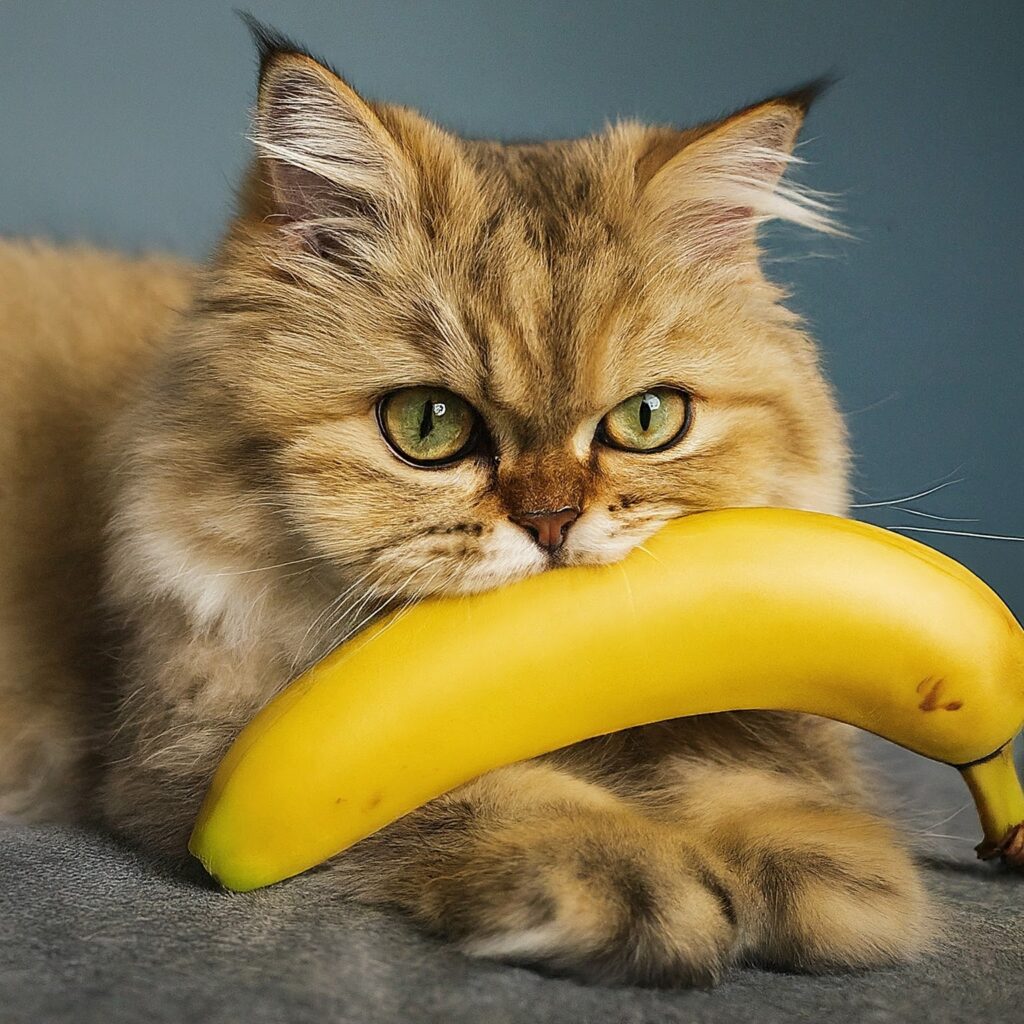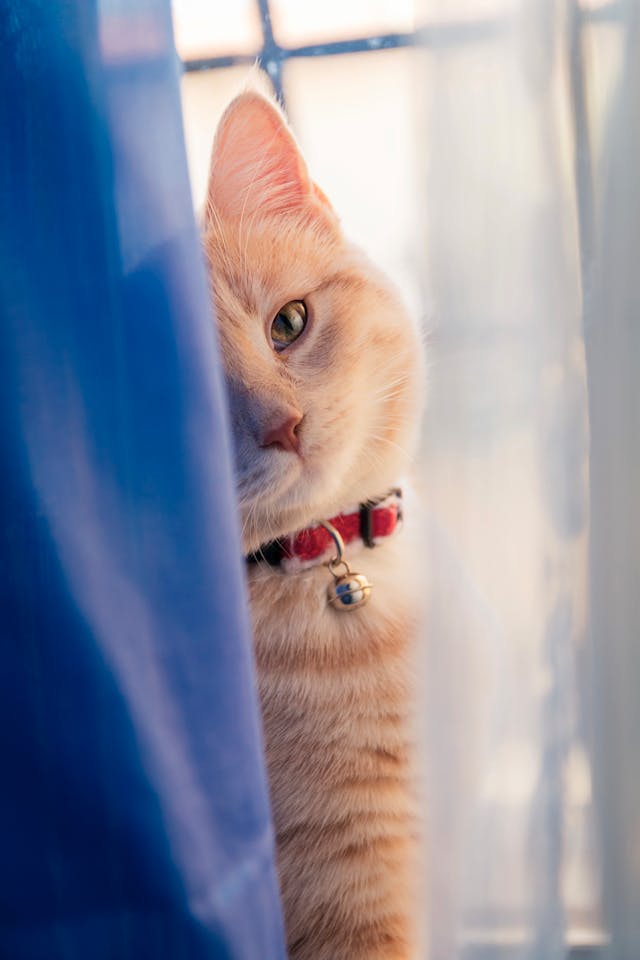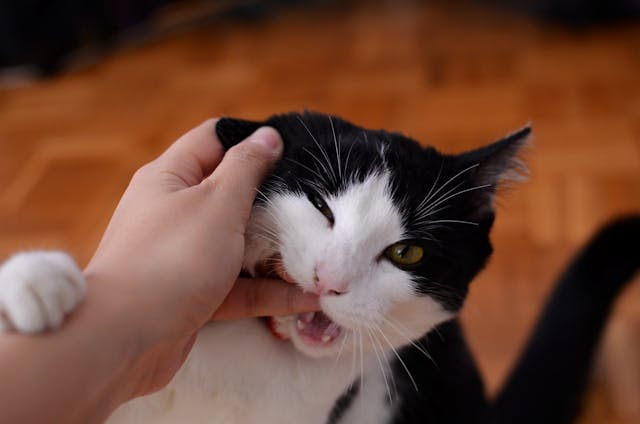Overview
Concerns about what our cherished animal friends can consume frequently come up in pet care. One such question is if the delicious banana fruit is edible by cats. Although cats are mostly meat eaters, there are sporadic cases in which fruits or vegetables can be deemed safe. This page looks into the nutritional needs, possible risks, and other treats to think about of cats that can safely eat bananas. You’ll know exactly by the end if your cat can eat bananas or not.
Could Cats Eat Bananas?
The nutritional value of bananas, those curved, potassium-rich fruits, is sometimes celebrated. For our feline friends, though, are they appropriate? The nutritional makeup of bananas is quite good for human health. A mineral essential for neuron function, muscular control, and electrolyte balance, potassium is abundant in them. Bananas also provide dietary fiber, which improves feelings of fullness and helps with digesting. They also supply B6 and C, two vital vitamins for metabolism and immune system. Though these nutrients are important to humans, their importance to cats may differ because of dietary needs.
Feline Digestive Physiology: Determining if bananas are safe for cats to eat requires knowledge of their digestive system. Obligate carnivores, cats have developed to live mostly on meat. Their digestive systems are set up to consume fat and proteins from animals, unlike those of omnivores or herbivores. They so lack specific digestive enzymes needed to effectively break down plant material, particularly the sugars found in fruits like bananas.
Possible Advantages of Bananas for Cats
Even though cats are predators, others contend that, in moderation, they may benefit from bananas. Bananas, for example, may help cats’ muscles and heart health. Bananas also include nutritional fiber, which may help cats with constipation, a frequent problem.
The dangers of feeding bananas to cats exist even if they may have certain advantages. One worry is that bananas are quite heavy in sugar, which if overindulged in, can cause cats to gain weight and develop dental problems. Bananas’ high glucose content can also be difficult for cats to digest, which could result in gastrointestinal problems including vomiting or diarrhea. Some cats may also be allergic to bananas, in which case they might have uncomfortable symptoms such itching, skin irritation, or even more serious ones.
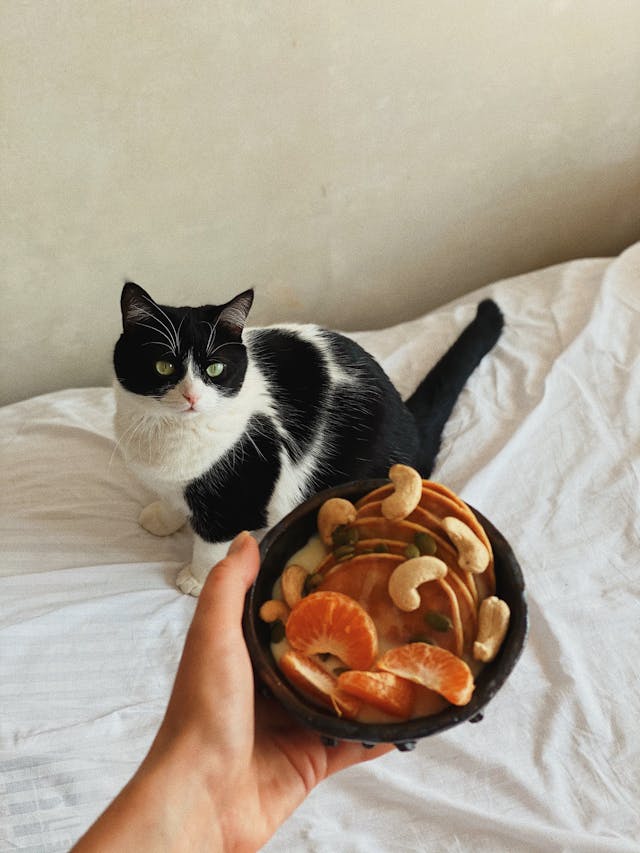
Techniques for Giving Cats Bananas Safely
Offering your cat bananas is something you should do carefully and sparingly. These are some healthy ways to include bananas in your cat’s diet:
Get Started Small Offering your cat a tiny piece of ripe banana at first can help you determine their tolerance and reaction.
Look for Reactions: Watch your cat closely after eating bananas for any indications of allergic reactions or digestive problems.
The Preparation Matters: For your cat’s ease of digestion, mash or puree the banana and think about combining it with their usual meals or treats. A key to moderation is Give your cat less bananas overall, and view them as a special treat rather than a mainstay of their nutrition.
Feline Treats Other Than Bananas
There are many of other treats available if you determine that bananas aren’t for your cat. Among your choices are:
Cooked Meat: Treat your cat to little bits of cooked fish, turkey, or chicken as a species-appropriate and high-protein snack.
Catnip: An easy and safe substitute for bananas, catnip is enjoyed by many cats.
Commercial Cat Treats: Select premium, commercially available cat snacks made especially to suit the dietary requirements and tastes of your cat.
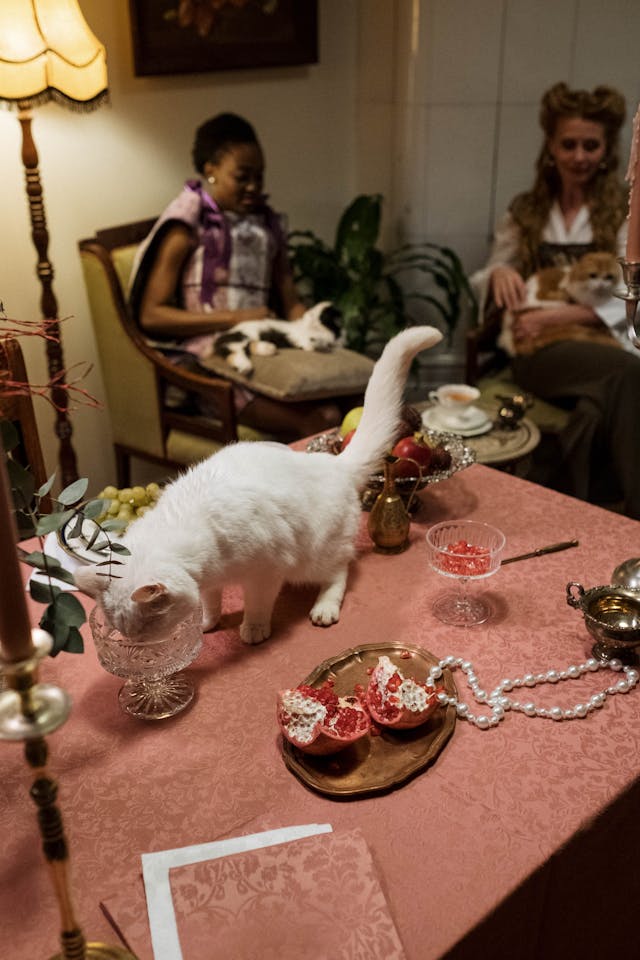
Conclusion
In conclusion, bananas are not necessary for cats’ diet even if they might provide some nutrients that could be beneficial. Your cat’s dietary needs, digestive system, and any allergies or sensitivities should all be taken into account before adding bananas or any other new food. Making decisions that put your cat’s health and welfare first requires being aware of these things and adhering to the advised procedures for introducing bananas properly. Investigating other treats catered to the requirements and tastes of your cat can also guarantee that they have a varied and well-balanced diet that promotes their general well-being and pleasure

